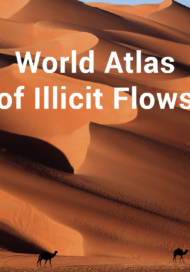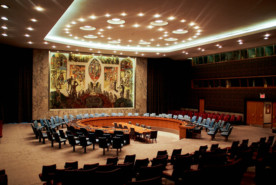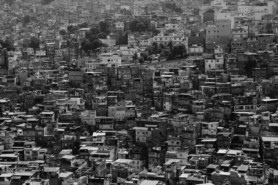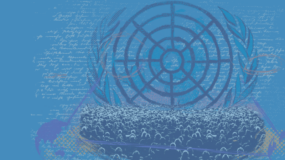Posted on 26 Sep 2018
Organized crime takes the lion’s share of USD31.5 billion in illicit flows in and around conflict areas
A new report warns that the illegal exploitation and taxation of gold, oil and other natural resources is overtaking traditional sources of threat finance, such as kidnapping for ransom and drug trafficking, which fund terrorist and militant groups.
The World Atlas of Illicit Flows, compiled by INTERPOL, RHIPTO – a Norwegian UN-collaborating centre – and the Global Initiative Against Transnational Organized Crime, provides the first consolidated global overview of their significance in conflicts worldwide.
Of the USD31.5 billion in illicit flows generated annually in conflict areas, 96% goes to organized criminal groups, with this money helping fuel violent conflict.
Based on public reports and criminal intelligence, the World Atlas identifies more than 1,000 routes used for smuggling and other illicit flows.
The illicit exploitation of natural/environmental resources, such as gold, minerals, diamonds, timber, oil, charcoal and wildlife, is the single-largest overall category of threat finance to conflicts today, estimated at 38% share of illicit flows to armed groups in conflict. When incomes from these natural resources are combined with their illicit taxation and extortion (26%) by the same non-state armed groups, the figure becomes as high as 64%.
- 38 per cent – Environmental crime, including illegal exploitation of oil, minerals and gold
- 28 per cent – Drugs
- 26 per cent – Illegal taxation, extortion, confiscation and looting
- 3 per cent – External donations
- 3 per cent – Money extorted through kidnapping for ransom
- 1 per cent – Charcoal
- 1 per cent – Antiquities
“The huge volume of illicit money being generated through the exploitation of natural resources is of great concern. Criminal networks and their activities fuel violent conflict which in turn undermines the rule of law,” said Jürgen Stock, INTERPOL Secretary General. “The report provides a new impetus for our continued efforts to stem these illicit flows and combat the threat transnational organized crime poses to peace, development and security,” he added.
“Combating organized crime must be considered a significant factor in conflict prevention and resolution if we are to become successful in securing peace,” said Christian Nellemann, Head of the RHIPTO Center. “In many instances, criminal groups, some closely connected to political elites, may have a vested interest in renewed and continued armed struggle to ensure their dominance over natural resources and trade routes.”
Of 1,113 UNSC resolutions passed between 2000 and 2017, 35% mention forms of crime, and in each of the last five years, more than 60% of the UNSC resolutions have mandated a response to criminal flows and markets.
“Organized crime is increasingly undermining peace, security and development,” said Mark Shaw, Director of the Global Initiative Against Transnational Organized Crime. “It has become a global phenomenon, represented in a confluence of conflicts from Africa, to the Middle East and the Americas, and showing a distinct linkage to the response to international terrorism.”
Strengthening enforcement, information sharing and analysis is essential in order to prevent, disrupt and defeat violent armed groups and the organized-criminal actors that create an environment of impunity and instability.
For the seven main extremist groups of insurgents and terrorists the combined funding totals about USD1-1.39 billion a year. Illicit smuggling may also include transshipments in violation of UN Sanctions.
- In 2017 some 40,000 members of the Taliban received an estimated income of USD75–95 million from taxation – particularly of drugs, land and agricultural produce – and from donations from abroad.
- In mid-2017, ISIS/Daesh made an estimated USD10 million a month. This figure is 98% down from their high of USD549–1 693 million in 2014. In all likelihood, the group has considerable reserves of an unknown size.
- The merged al-Qaeda groups HTS in Syria and JNIM in the Sahel make an estimated USD18–35 million and USD5–35 million respectively, from illegal taxation, donations, kidnapping for ransom, extortion, smuggling of counterfeit cigarettes, drugs and illegal taxation.
- Al-Shabaab receives an estimated USD20 million, half from the illicit charcoal trade and the rest from other forms of taxation
- Boko Haram made an estimated USD5–10 million, mainly from taxation, bank robberies, donations from other terrorist groups and kidnapping for ransom.





